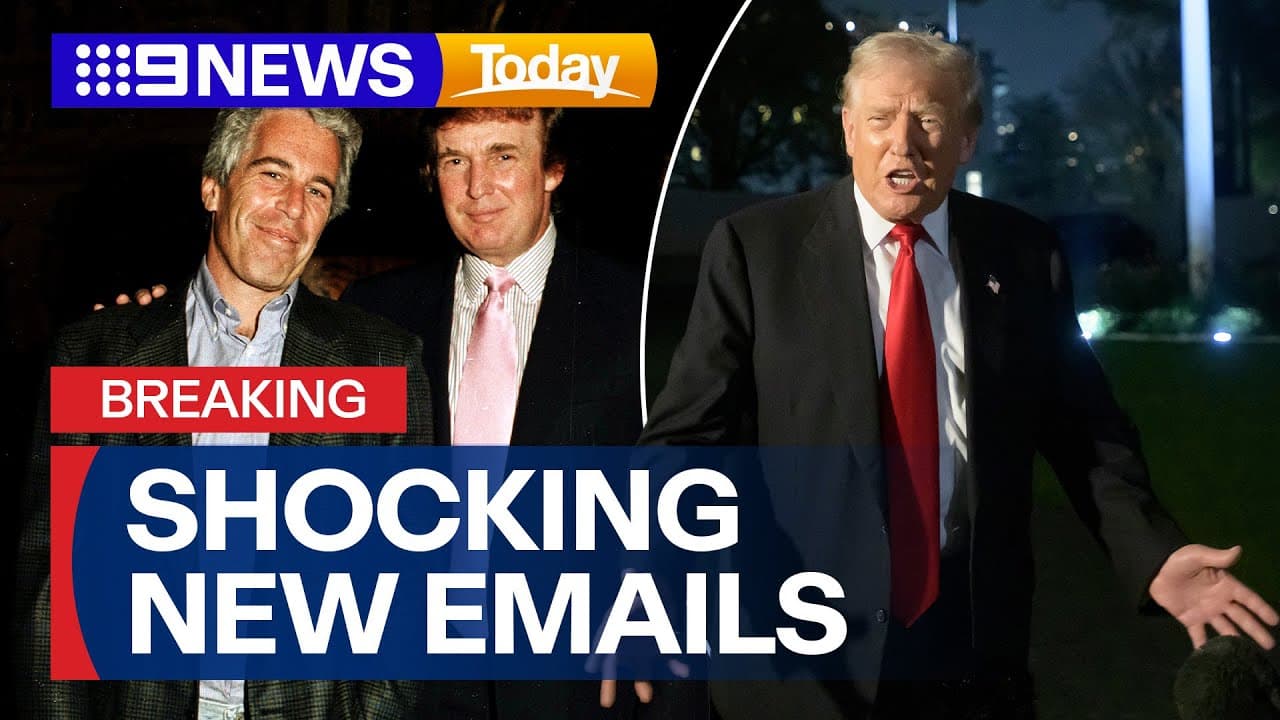We're loading the full news article for you. This includes the article content, images, author information, and related articles.
Newly released documents from Jeffrey Epstein's estate, made public by US lawmakers, contain allegations that President Donald Trump was aware of the financier's sex trafficking activities. The White House has dismissed the claims as a political smear.

WASHINGTON D.C. – The U.S. House Oversight Committee on Wednesday, November 12, 2025, released thousands of pages of documents from the estate of convicted sex offender Jeffrey Epstein, including emails where Epstein claimed President Donald Trump knew about his sexual abuse of underage girls. The release has reignited scrutiny of the long-standing relationship between the two men and prompted accusations of a political smear campaign from the White House.
Democrats on the committee initially published three email exchanges. In an April 2011 email to his associate Ghislaine Maxwell, Epstein referred to Trump as “the dog that hasn’t barked,” adding that a victim, whose name was redacted, “spent hours at my house with him ,, [sic] he has never once been mentioned.” Maxwell, who is serving a 20-year prison sentence for sex trafficking, replied, “I have been thinking about that.”
In another email from January 2019 to author Michael Wolff, Epstein wrote, “of course he [Trump] knew about the girls as he asked ghislaine to stop.” A separate 2015 exchange between Epstein and Wolff discussed a potential question for Trump about their relationship during an upcoming CNN interview, with Wolff suggesting Epstein could “let him hang himself.”
In response to the Democrats' release, House Republicans published a much larger tranche of over 20,000 documents from the estate, accusing their counterparts of “cherry-picking” information to create a “fake narrative to slander President Trump.”
White House Press Secretary Karoline Leavitt echoed this sentiment, stating on Wednesday that Democrats had “selectively leaked emails to the liberal media to create a fake narrative to smear President Trump.” Leavitt identified the redacted victim mentioned in the emails as the late Virginia Giuffre, a key accuser of Epstein and Maxwell who maintained that Trump was never involved in any wrongdoing and was always professional and friendly towards her. Giuffre, who died in April 2025, wrote in a posthumously published memoir that she met Trump once and he “couldn’t have been friendlier.”
President Trump, on his social media platform Truth Social, dismissed the issue as the “Jeffrey Epstein Hoax” and an attempt by Democrats to deflect from the recent government shutdown. “There should be no deflections to Epstein or anything else,” he wrote.
The relationship between Trump and Epstein dates back to the late 1980s. In a 2002 interview with New York magazine, Trump called Epstein a “terrific guy” and remarked, “It is even said that he likes beautiful women as much as I do, and many of them are on the younger side.” The two socialized frequently in the 1990s and early 2000s at locations like Trump's Mar-a-Lago resort in Florida. Flight logs show Trump flew on Epstein's private jet multiple times in the 1990s.
Both Trump and various reports offer conflicting accounts of when and why their friendship ended. Trump has stated he had a falling out with Epstein around 2004 and hadn't spoken to him in 15 years. Reasons cited for the split include a bidding war over a Palm Beach mansion in 2004, Epstein allegedly harassing the teenage daughter of a Mar-a-Lago member in 2007, and Epstein recruiting employees from Trump's club.
Epstein was convicted of procuring a minor for prostitution in 2008. He died by suicide in a federal jail in August 2019 while awaiting trial on federal sex trafficking charges.
While this story is centered in the United States, the Jeffrey Epstein case has significant global implications due to the powerful international figures connected to him. The continued release of documents keeps the actions of global elites under a microscope, raising questions about accountability for the powerful. For audiences in Kenya and East Africa, this story serves as a powerful case study in the complexities of high-level criminal investigations, the intersection of wealth, power, and justice, and the role of investigative journalism in holding influential figures to account. The political polarization surrounding the document release in the U.S. also highlights the challenges of discerning factual information in a highly charged media environment, a phenomenon with parallels worldwide.
Ranking Democrat on the House Oversight Committee, Rep. Robert Garcia, stated, “These latest emails and correspondence raise glaring questions about what else the White House is hiding.” He called for the Department of Justice to release all Epstein-related files to the public immediately.
Keep the conversation in one place—threads here stay linked to the story and in the forums.
Sign in to start a discussion
Start a conversation about this story and keep it linked here.
Other hot threads
E-sports and Gaming Community in Kenya
Active 9 months ago
The Role of Technology in Modern Agriculture (AgriTech)
Active 9 months ago
Popular Recreational Activities Across Counties
Active 9 months ago
Investing in Youth Sports Development Programs
Active 9 months ago